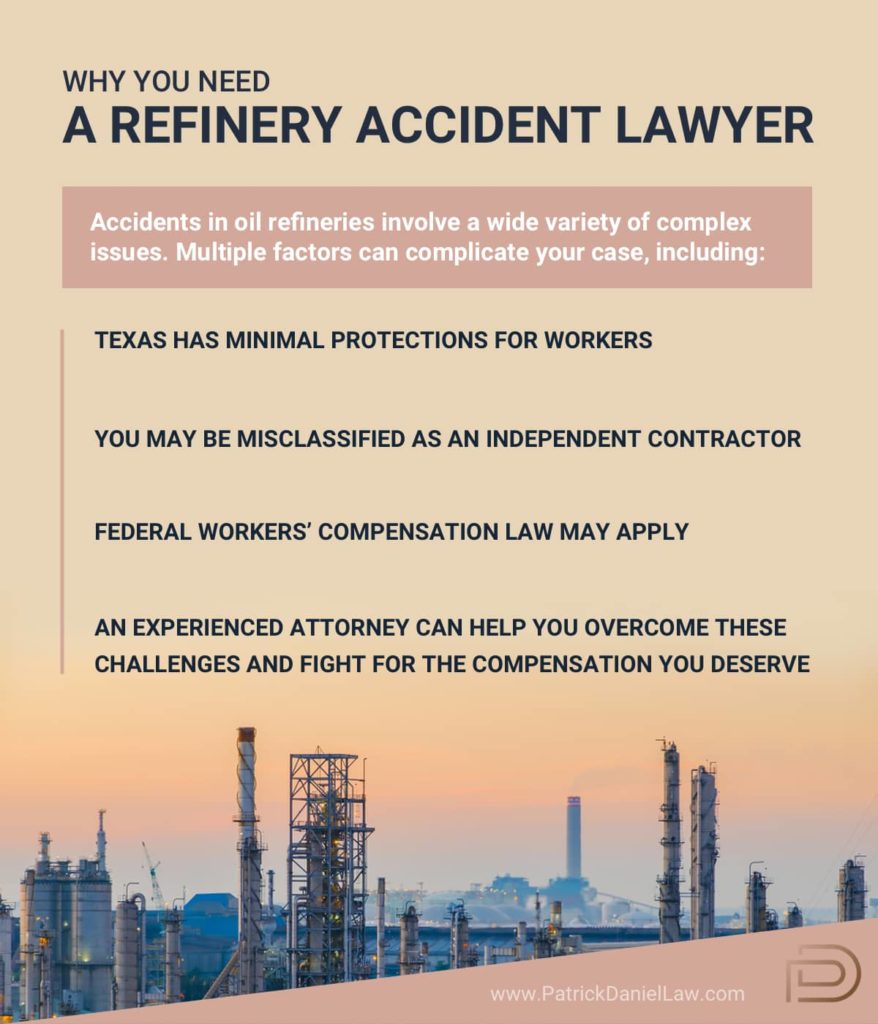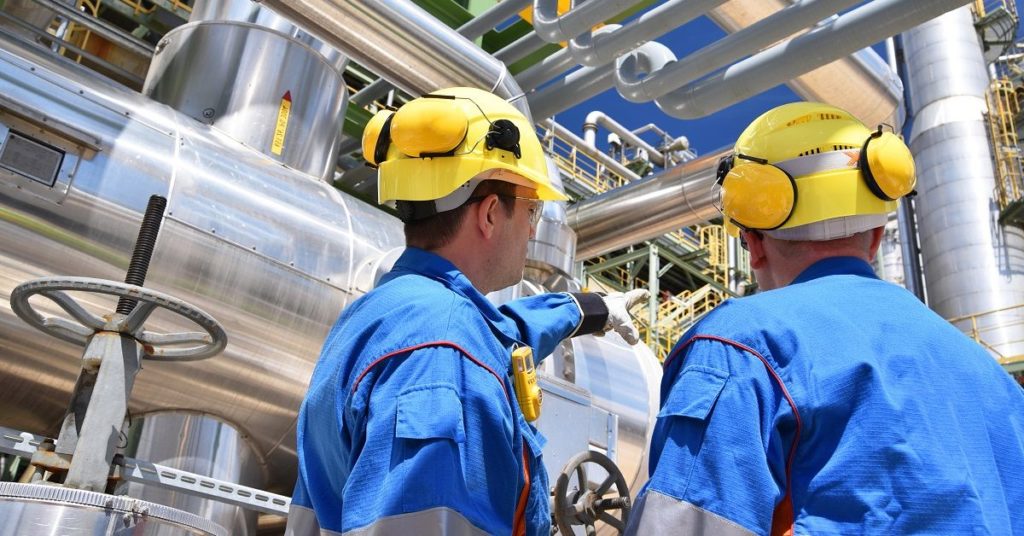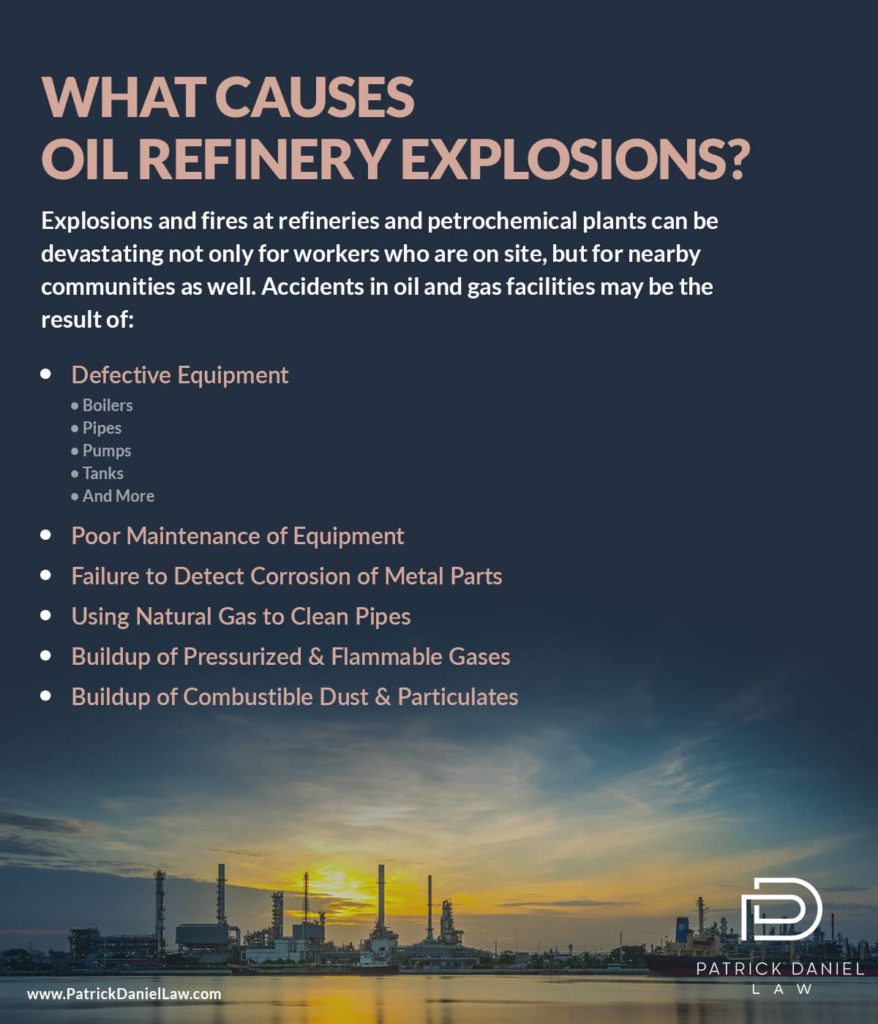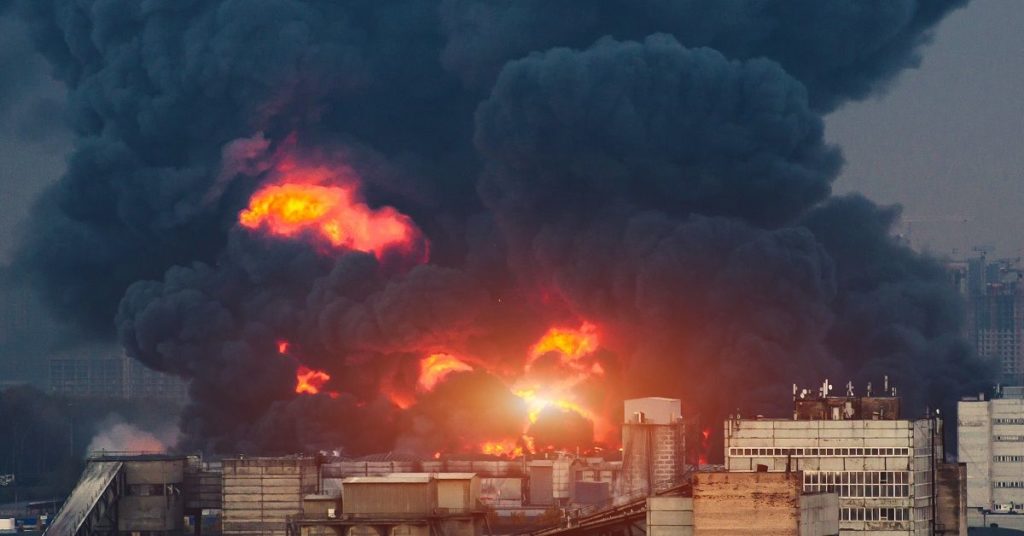Oil and gas is big business in Houston and other areas of Texas. With multiple companies employing tens of thousands of workers in the industry, many people in the state make their living through work at refineries and other facilities.
Working in the oil and gas industry is dangerous. However, when companies follow the proper procedures, the risk of serious injuries and death should decrease. Unfortunately, corporations often put profits ahead of their employees’ safety.
If you or a loved one has been injured in a refinery or other chemical plant, or you lost a loved one at one of these facilities, contact Patrick Daniel Law at (713) 999-6666 today for a FREE case review. Our team serves clients in the greater Houston area, all of Texas, and nationwide.
The Houston metro area is home to 10 major oil refineries. According to the Greater Houston Partnership, these refineries are responsible for processing more than 45 percent of the oil produced in Texas. Refineries in other areas of Texas, including Port Arthur, Galveston, Corpus Christi, Baytown, and Beaumont, are responsible for more than one-fourth of all oil production in the United States.
What this means is that tens of thousands of workers in our state are employed in refineries. The Houston Chronicle reported in 2020 that Texas as a whole boasts nearly 150,000 workers in the oil and gas industry.
Refineries play an important role in the economy of Houston and all of Texas. As a result, it is important for oil and gas workers to know their rights if they are injured in an accident or explosion on the job.

Working with hazardous chemicals comes with a number of dangers. Fires, explosions, and exposure to toxic materials are just a few of the accidents that can endanger workers’ health and safety.
However, these are not the only dangers workers face. Other causes of accidents in these workplaces include:
Accidents in oil and gas facilities may be the result of:
Another leading factor in plant and refinery accidents is negligent supervision of workers. Oil and gas companies have a responsibility to ensure that employees are in compliance with federal safety regulations governing their operations. When supervisors and managers fail to do their jobs, serious and even deadly accidents may occur.
Inadequate training of employees may also be a factor in refinery and plant accidents. Ultimately, the company is responsible for ensuring that its employees abide by workplace safety standards and know how to handle heavy equipment and dangerous materials safely. Disaster often occurs when companies cut corners on employee training.
Given the hazardous chemicals involved, accidents at plants and refineries carry a high risk of serious, life-altering injuries. These include:
Tragically, in some cases workers perish from their injuries in refinery and chemical plant accidents, with catastrophic events like explosions and fires often resulting in multiple fatalities. These disasters also present long-term risks, as those exposed may later develop severe respiratory illness, cancer, and other serious illnesses due to the release of toxic chemicals.
Explosions and fires at refineries and petrochemical plants can be devastating not only for workers who are on site, but for nearby communities as well. Homes have been damaged and entire neighborhoods in the vicinity of a plant or refinery have been evacuated in the wake of explosions and fires.
Oil and gas workers come into contact with a wide range of hazardous chemicals and other materials on a daily basis. Mishandling these materials poses a risk of serious physical injury. However, the potential harm of petrochemicals is not confined to traumatic events such as fires, explosions, and inhalation of fumes.
Workers may suffer severe health issues as a result of long-term exposure to substances such as:
If your employer has workers’ compensation insurance, you may be entitled to benefits covering medical expenses and loss of wages if an occupational illness limits your ability to work. However, if workers’ compensation is not available, you will need to prove that your employer and/or a third party was negligent in exposing you to dangerous substances on the job.
The Texas refinery accident attorneys at Patrick Daniel Law can investigate the safety practices, employee training, and equipment used at the refinery to determine if one or more parties were negligent in their duty to protect workers like you from toxic exposure. Our refinery accident attorneys fully explore your legal options for recovering compensation.

You might think workers’ compensation is your only recourse after suffering an injury on the job at a refinery or plant. However, this may not be the only avenue you have for recovery.
If the accident was the result of extreme negligence on the company’s part, you may be able to sue for the losses you and your family have sustained. Other parties may be liable as well, including:
Major oil and gas companies will always try to pass the buck when an accident happens. When you contact an experienced refinery explosion attorney, you improve the likelihood of recovering the compensation you deserve from the party or parties responsible.
You may be entitled to workers’ compensation benefits if you are hurt in a refinery accident or explosion. Surviving family members may also be entitled to benefits if a petroleum worker is killed in the course of his or her employment.
However, several factors can complicate your ability to receive benefits for a work-related injury or death:
The majority of states require most employers doing business within their borders to carry certain minimum amounts of workers’ compensation insurance. However, Texas does not require private employers to carry workers’ compensation insurance coverage.
Employers that subscribe to workers’ compensation insurance provide the following benefits in the event of worker injury or death:
Obviously, workers’ compensation benefits only cover a portion of the losses you and your loved ones may sustain as a result of a refinery accident. However, the benefit of a workers’ compensation claim is that you do not have to prove negligence on the part of your employer or another party. As a result, oil and gas workers are typically compensated sooner for injuries and illnesses suffered on the job.
But, if your employer does not participate in a workers’ compensation insurance program, you may need to file a lawsuit to recover damages. Your employer and other negligent third parties may be held liable for refinery accidents, explosions, toxic exposure, and other harmful events.
The petroleum industry is notorious for its routine misclassification of workers. Although you may be an employee in every meaningful respect, on paper you may be identified by the company as an independent contractor.
In addition to cheating workers out of benefits, overtime pay, and more, misclassification can create problems for workers who are injured or get sick on the job. Employers are not required to carry workers’ compensation insurance for independent contractors. So, even if your employer is insured, you may be denied benefits if the company has misclassified you as a contractor.
At Patrick Daniel Law, we will discuss not only your injuries from the refinery accident but the nature of your employment. Our team will obtain records from your employer to determine how you are classified. If there is evidence of misclassification, our attorneys can build a claim on your behalf for the benefits and other compensation you deserve.
In addition to refineries in Houston and other oil centers of Texas, the waters of the Gulf of Mexico host a significant portion of the petroleum industry. Oil platforms off the coast of Texas and other southeastern states drill, process, and store a significant volume of oil and gas.
Working on an oil rig at sea is dangerous. If you are injured or become sick, your path to compensation probably lies not in the state workers’ comp program but with federal legislation known as the Jones Act.
The Jones Act promises “maintenance and cure” to maritime workers who are injured or become ill during the course of their employment at sea. However, recovering fair compensation for an injury on an oil platform or other vessel is not always easy.
Patrick Daniel Law has extensive experience handling maritime injury claims. Our knowledge of both maritime law and work injury in the oil and gas industry gives us keen insight into these complex cases.

Considering the number of people typically affected and the extent and severity of injuries, the damages sought in cases involving explosions, fires, and other accidents at plants and refineries are often very high. And for good reason: The worst oil and gas disasters have resulted in hundreds of serious injuries and multiple deaths.
The amount of compensation recoverable in your claim will depend on your individual losses. Generally, you may be able to recover damages for:
At Patrick Daniel Law, we are strategic in our approach to each case. We meticulously build your claim based on the evidence and the injuries you have suffered. Then, we mercilessly pursue the compensation you deserve from all of the parties at fault.
Fatalities are a common, tragic occurrence in oil and gas facility disasters. If you lose a loved one in a fire, explosion, or other accident at a plant or a refinery, our lawyers can pursue a wrongful death claim on your family’s behalf.
The damages recoverable in a wrongful death claim will depend on the losses you and your family have suffered. Generally, you may be able to recover compensation for:
The loss of a loved one is emotionally devastating. It can also put your family in difficult financial circumstances. If your loved one worked in oil and gas and his or her death is the result of negligence on the part of the company or another party, you deserve to be compensated.
Accidents in oil refineries involve a wide variety of complex issues. It is in your best interest to speak to an attorney as soon as possible if you have been injured or a loved one was killed in a refinery accident or explosion.
At Patrick Daniel Law, we are Strategic, Meticulous, and Merciless in handling our clients’ claims. Our team performs comprehensive investigations to determine how the accident occurred and who is at fault.
Injuries and accidents at oil refineries, chemical plants, and other petroleum sites typically involve a host of factors. Multiple parties may be at fault for injuries sustained by workers. Our attorneys meticulously gather evidence, hire experts, and develop an individualized legal strategy to take on all of the liable parties. We explore all avenues for your recovery, assessing the pertinent state and federal laws to determine all of the options you have for filing a claim.
Merciless legal representation means we never settle your case for less. Whether in insurance company negotiations or in court, our lawyers are committed to pursuing the compensation you and your family deserve.

Because refinery accidents may give rise to multiple claims, several different time limits may apply in your case. The workers’ compensation law in Texas mandates that any injury or illness must be reported to an employer within 30 days. Workers have one year to file a claim for benefits. Maritime oil and gas workers have three years to file a claim under the Jones Act.
Personal injury and wrongful death claims stemming from a refinery accident must be brought within two years. This includes negligence-based claims against your employer and/or a third party, such as a contractor, property owner, etc., as well as product liability claims against the maker(s) of a defective product.
After the fires are extinguished in the wake of a refinery or plant accident, an extensive investigation will generally follow. Agencies such as the U.S. Chemical Safety and Hazard Investigation Board (CSB) will determine what caused the explosion or fire. Other accidents may be investigated by the Occupational Safety and Health Administration (OSHA) and state or local authorities. The company will likely perform its own investigation as well.
Although the findings of CSB, OSHA, and other agencies are crucial for getting to the bottom of oil and gas industry accidents, it is important to have your own qualified legal team who can investigate the accident on your behalf and protect your rights and interests.
Patrick Daniel Law has represented explosion victims of industrial and refinery accidents, electrical burns, fires, explosions, bystander injuries, and the impact on families of those killed in industrial, refinery, and chemical plant explosions.
The attorneys at Patrick Daniel Law have extensive experience in complex litigation claims. We gather crucial evidence and work with experts in the oil and gas industry and other fields to determine what caused the accident. Then, we strategically and meticulously build your claim, and mercilessly pursue the full compensation you deserve.
Considering the important role the petroleum industry plays in the Texas economy, oil and gas companies may seem untouchable. This is not the case, and the lawyers at Patrick Daniel Law make it their mission to hold negligent companies accountable for serious accidents at oil refineries and chemical plants.
The Texas City Refinery disaster remains one of the most significant refinery accidents in history. Occurring on March 23, 2005, at the BP-operated refinery in Texas City, Texas, the explosion resulted in the tragic loss of 15 lives while injuring over 180 workers. Investigations into the incident revealed a series of safety management system deficiencies and oversights, culminating in the explosion.
The Occupational Safety and Health Administration (OSHA) imposed a then-record fine of $21 million on BP for the company’s failure to protect the health and well-being of its employees. Moreover, the accident brought to light the inherent dangers and complexities associated with the refinery industry.
For victims of refinery accidents, navigating the path to justice can be daunting. The potential for accidents remains significant in Houston, a refineries hub. Here, a dedicated refinery accident lawyer can prove indispensable. At Patrick Daniel Law, we are unwaveringly committed to ensuring victims receive the compensation they rightfully deserve.
The Texas City Refinery explosion was a tragic event that stemmed from multiple safety and operational failures. The immediate cause of the explosion was the overflow of highly flammable liquid hydrocarbons into a blowdown drum linked to the refinery’s isomerization (ISOM) unit. The drum couldn’t hold this amount of hydrocarbons, and they flowed from the drum, vaporized, and formed a large vapor cloud. This cloud was then ignited by an idling diesel truck nearby, leading to the massive explosion.
Several underlying factors contributed to this disaster:
BP personnel failed to realize that the ISOM unit had started overflowing. Alarms and gauges that should have alerted operators of the overflow were not appropriately functioning or went unnoticed.
The blowdown drum and stack, which released the flammable hydrocarbons, were outdated. Modern equipment would have rerouted these hydrocarbons to a flare system where they could have been safely burned off.
Investigations, including one by the U.S. Chemical Safety and Hazard Investigation Board (CSB), found that BP had a lax safety culture, emphasizing cost-saving over optimal safety practices.
Refinery explosions, while not an everyday occurrence, are more frequent than one might assume. Refineries handle highly flammable substances under extreme pressures and temperatures, creating environments where accidents can occur if safety protocols aren’t meticulously followed. Given the inherently hazardous nature of refining processes and the materials involved, a fire or explosion can be catastrophic.
Reports from the CSB and Marsh JLT Specialty detail at least 35 explosions, fires, and toxic incidents between the Texas City Refinery disaster in 2005 and 2019, signaling an ongoing risk in the sector. Houston, Texas, known as the energy capital of the world, houses many refineries. Consequently, the region has witnessed the lion’s share of U.S. refining incidents over the years.
It’s worth noting that many refineries can operate for extended periods without major incidents when following rigorous safety protocols and implementing continuous training. Yet, when accidents occur, the repercussions can devastate victims and their families.
The Texas City Refinery explosion in 2005 had far-reaching consequences, not only in immediate devastation but also in reshaping industry safety standards and practices.
The most tragic consequence was the loss of 15 workers, with over 180 others sustaining injuries. Many survivors and families of the deceased faced lasting physical and psychological traumas.
BP faced a then-record fine of $21 million from OSHA due to the company’s multiple safety violations. Additionally, the company settled millions in claims to affected families and workers and incurred costs associated with repairing the refinery and compensating for lost production.
The accident led to widespread scrutiny of safety practices across the refining industry. Regulatory bodies emphasized the need for more stringent safety protocols and the replacement of outdated equipment.
Numerous lawsuits emerged in the wake of the explosion. Victims sought compensation for injuries, trauma, and loss, underscoring the necessity of proficient legal counsel in such complex cases.
Pursuing just compensation can be daunting for those affected by refinery accidents in areas like Houston. A Texas refinery accident lawyer, like Patrick Daniel, plays a critical role. His unwavering dedication ensures that victims and families receive some amount of justice.
Refineries are complex facilities, teeming with hazards that can result in a range of injuries. One of the most common injuries at refineries is burn injuries. Since refineries deal with processing flammable hydrocarbons at high temperatures, the risk of fires and explosions is ever-present. A minor oversight or equipment malfunction can lead to significant fires, subjecting workers to severe burns.
Apart from burns, other frequently observed injuries include:
If you or a loved one has been injured in a refinery accident, the aftermath can be overwhelming. Taking the right steps immediately after the incident can be crucial for your safety, health, and potential legal action:
In the aftermath of a refinery accident, a Houston refinery accident lawyer becomes an invaluable ally. Firms like Patrick Daniel Law, renowned for their Strategic. Meticulous. Merciless. approach, are committed to pursuing the compensation victims deserve, especially when they need it the most.
Losing a loved one in a refinery accident is a devastating and traumatic event. While no amount of compensation can replace your loved one, it’s important to know your rights and the steps to take in the wake of such a tragedy:
Having a dedicated advocate becomes indispensable in the complex and emotionally charged aftermath of a loved one’s tragic passing in a refinery accident.
Workers in the oil and gas industry know the risks when they go to work. However, what they don’t expect is the company to take shortcuts that compromise their safety. If you were injured or lost a loved one in a fire, explosion, or other accident at a plant or refinery, Patrick Daniel Law has the knowledge, experience, and tenacity to help you and your family.
Please call (713) 999-6666 or contact us online today for a FREE consultation. Our lawyers serve oil and gas workers throughout the Houston area and all of Texas, as well as nationwide.
 Top Truck Accident Lawyer in Pasadena
Top Truck Accident Lawyer in Pasadena Best of The Best Attorneys
Best of The Best Attorneys Best of the Best Houston Chronicle 2021
Best of the Best Houston Chronicle 2021 Best Motorcycle Accident Lawyers in Houston 2021
Best Motorcycle Accident Lawyers in Houston 2021 American Association for Justice Member
American Association for Justice Member The National Trial Lawyers 2016 – (Top 40 under 40)
The National Trial Lawyers 2016 – (Top 40 under 40) Multi-Million Dollar Advocates Forum 2016 (Top Trial Lawyer)
Multi-Million Dollar Advocates Forum 2016 (Top Trial Lawyer) Million Dollar Advocates Forum 2019 (Top Trial Lawyer)
Million Dollar Advocates Forum 2019 (Top Trial Lawyer) America’s Top 100 Attorneys 2020 (High Stake Litigators)
America’s Top 100 Attorneys 2020 (High Stake Litigators) Lawyers of Distinction 2019, 2020 (Recognizing Excellence in Personal Injury)
Lawyers of Distinction 2019, 2020 (Recognizing Excellence in Personal Injury) American Institute of Personal Injury Attorneys 2020 (Top 10 Best Attorneys – Client Satisfaction)
American Institute of Personal Injury Attorneys 2020 (Top 10 Best Attorneys – Client Satisfaction) American Institute of Legal Advocates 2020 (Membership)
American Institute of Legal Advocates 2020 (Membership) Association of American Trial Lawyers 2018 - Top 100 Award recognizing excellence in personal injury law
Association of American Trial Lawyers 2018 - Top 100 Award recognizing excellence in personal injury law American Institute of Legal Professionals 2020 (Lawyer of the Year)
American Institute of Legal Professionals 2020 (Lawyer of the Year) Lead Counsel Verified Personal Injury 2020
Lead Counsel Verified Personal Injury 2020 The Houston Business Journal 2021
The Houston Business Journal 2021